US Prosecutors Secure Guilty Plea In First-Of-Its-Kind Espionage Act Case Involving Drone Photography
The prosecution carries implications for the right to engage in photography or gather news.
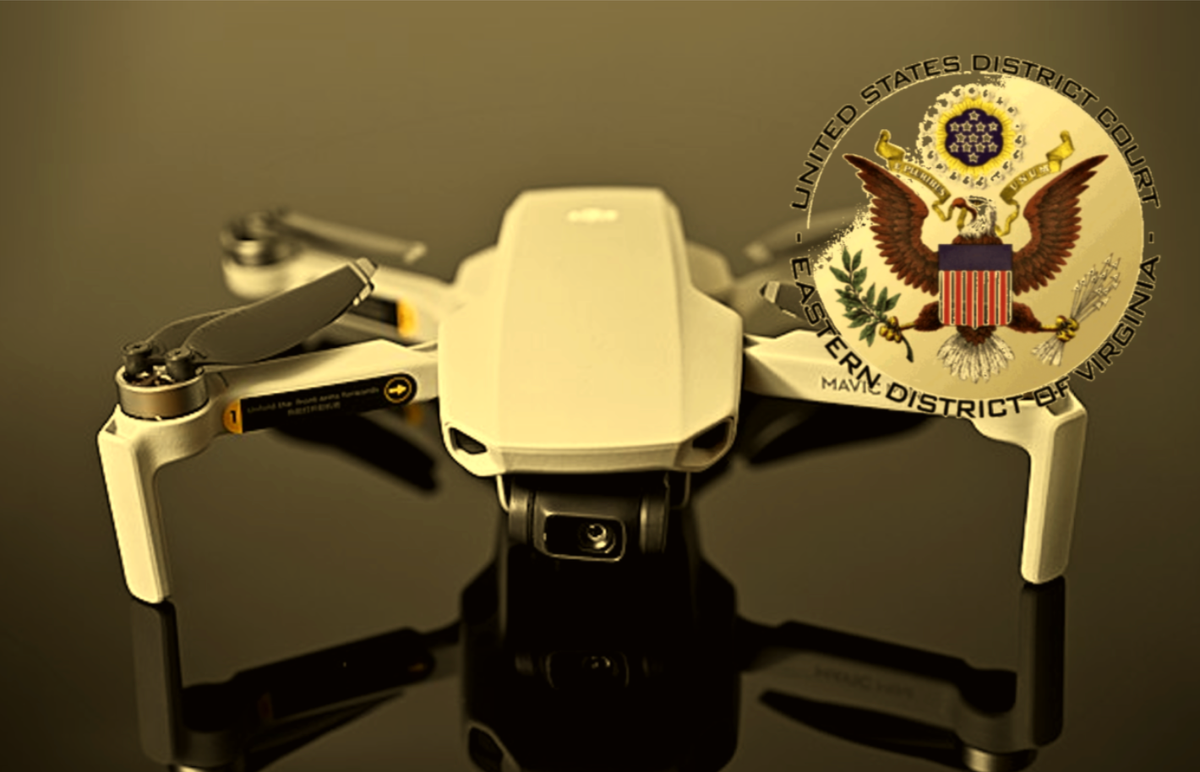
The following article was made possible by paid subscribers of The Dissenter. Become a subscriber with this special offer and support independent journalism on press freedom and government secrecy.
In a first-of-its-kind prosecution, a Chinese graduate student pleaded guilty to violating the United States Espionage Act when he flew a drone and photographed U.S. military and naval installations.
The plea deal does not create any legal precedent, and U.S. prosecutors in the Eastern District of Virginia never explicitly accused Fengyun Shi of spying on behalf of the Chinese government. However, the case itself carries implications for the right to photograph or gather news.
Shi agreed to plead guilty [PDF] to two counts of “unlawful photographing of designated installation without authorization.” Both are misdemeanor charges that carry a potential sentence of one year in prison and a fine of $100,000. He also faces deportation back to China.
According to the “statement of facts” in the plea agreement [PDF], Shi only took pictures of “U.S. naval vessels” and the sites of U.S. military contractors while flying his drone in Norfolk and Newport News in Virginia.
On January 6, 2024, Shi asked a resident of Newport News for help retrieving his “small commercial drone” after it became stuck in that resident’s tree.
The resident contacted the Newport News police. Officers asked Shi why he was flying his drone “in the area and in such inclement weather, to which Shi offered no reason other than he thought he could fly his drone in the residential area.”
Shi was apparently cooperative. He informed the police that he was a “University of Minnesota student on vacation in the area.” But he “appeared nervous and cradled the cell phone used to operate the drone” next to his body during the police encounter (which police treated as suspicious behavior).
The police did not help Shi retrieve his drone and urged him to contact the Newport News fire department for help. Shi apparently did not contact the local fire department and instead left the area for an Amtrak train to Washington, D.C. He stayed for a little more than a day before flying to Oakland, California.
On January 7, the drone “fell out of the tree.” The Naval Criminal Investigative Service (NCIS) retrieved the drone from the resident and confirmed that Shi was a Chinese national enrolled as a graduate student at the University of Minnesota.
Shi purchased the drone on January 3. He had flown the drone on January 5 around BAE Systems Shipbuilding and General Dynamics National Steel and Shipbuilding Company (NASSCO) in Norfolk.
The following day Shi flew the drone over Newport News Shipbuilding, a subsidiary of Huntington Ingalls that manufactures classified components of U.S. naval aircraft carriers or nuclear submarines.
Prosecutors included no information in the statement of facts related to Shi’s motives for taking the photographs. Cryptically, they noted that Shi had not taken the photos by “accident, mistake, or [any] other innocent reason,” and prosecutors also indicated that the statement of facts did not "describe all of the defendant’s conduct related to the offenses charged in this case.”
Similar to how charges under the Espionage Act are brought against government employees for disclosing information, prosecutors handled each charge as a strict liability offense. Why Shi took the photos was irrelevant. He took the photos and so he was guilty.
Previously, The Dissenter highlighted coverage of Shi’s case from PetaPixel, a photography news site that noted that the outcome may limit “a person’s right to photograph on public land.”
The site spoke to Emily Berman, a professor at the University of Houston who teaches national security law. Berman confirmed that the law had never addressed what Shi allegedly did to “any significant degree.” (In fact, the "presiding judge" found “only one reported case in precedent.”)
A little more than ten years ago, a photographer and reporter with the Toledo Blade took photos of the Joint Systems Manufacturing Center, a tank manufacturing plant in Lima, Ohio. They were harassed and detained by U.S. military police, and police seized their cameras and memory cards.
When the confiscated property was finally returned, the military police had destroyed all photos of the tank manufacturing plant, as well as photos of a nearby oil refinery. The Blade sued the U.S. government for violating the First Amendment Privacy Protection Act, which is supposed to prevent the search or seizure of “any work product materials possessed by a journalist.”
The lawsuit resulted in an $18,000 settlement, but the U.S. government admitted no wrongdoing.
An Army public affairs officer’s statement strongly suggested that military police had applied the Espionage Act provision against photographing military installations, which prosecutors charged Shi with violating.
Cindy Gierhart, who was a legal fellow for Reporters Committee for Freedom of the Press, said at the time that the statute is “overly broad because it doesn’t distinguish military secrets and what is plainly visible to the public.”
The affidavit included two night photos of a BAE Systems shipbuilding facility and one photo of the Newport News Shipbuilding (NNSB) facility. (NNSB is a subsidiary of Huntington Ingalls.)
This is part of why the U.S. Justice Department’s prosecution is bothersome. The photos included in the indictment against Shi contained nothing that was not already plainly visible, yet prosecutors considered them proof of a crime.
Below are three photos that Shi took that were included in an affidavit from FBI Special Agent Sara Shalowitz [PDF]:
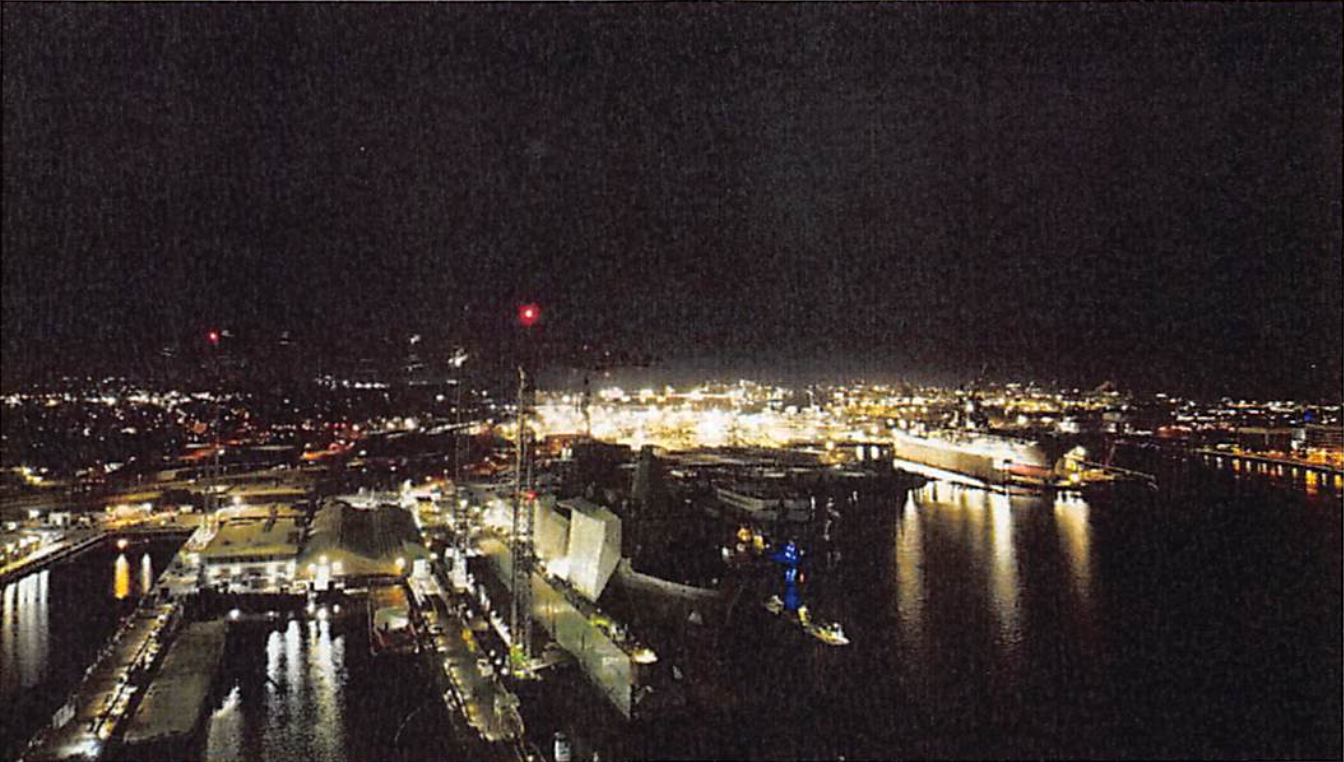
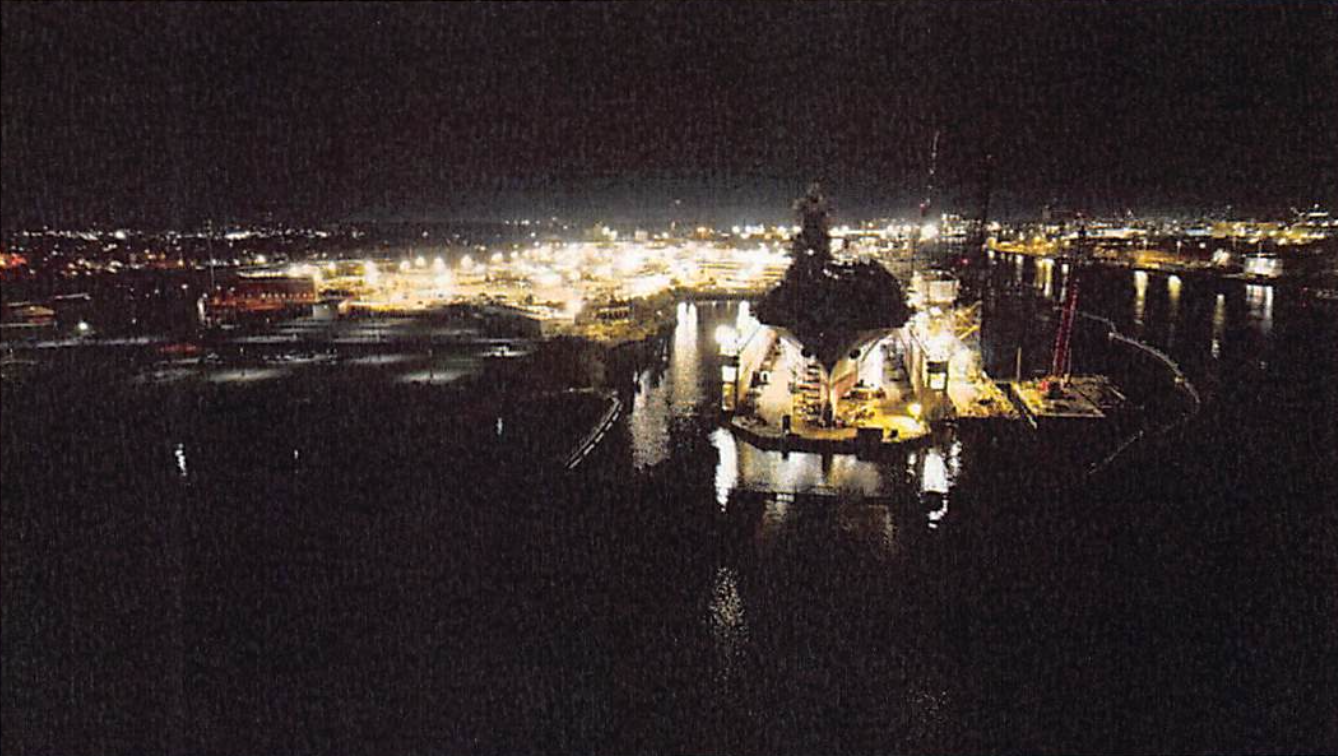
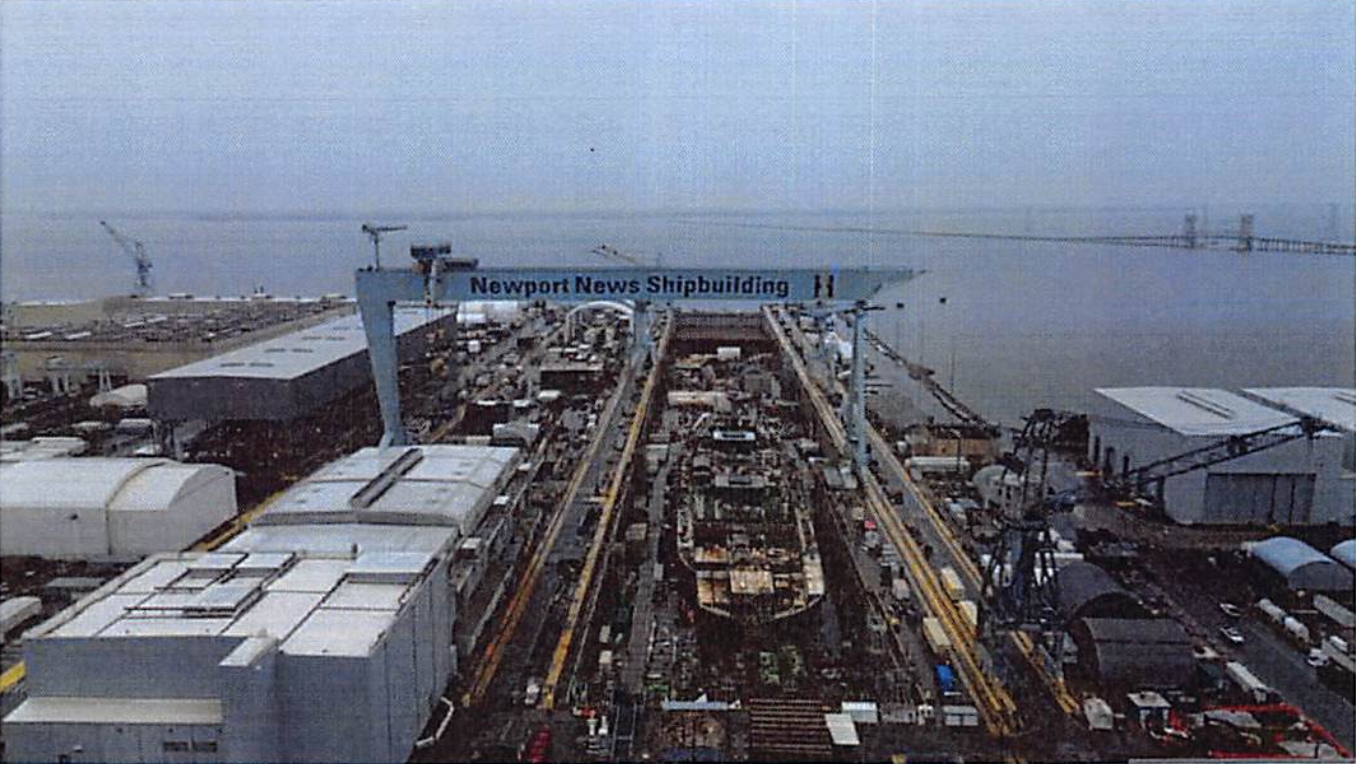
Freelance journalist Jordan Pearson reported for The Verge that “a colleague from the University of Minnesota” was “surprised to learn that Shi was even still in the US, adding that he’d effectively abandoned his studies months prior to his arrest.” That makes the lack of detail about Shi's motives even more puzzling.
If prosecutors had evidence that Shi was somehow working for the Chinese government but withheld it from the public, then they have jeopardized the right to photography and the gathering of news.
Or if Shi was prosecuted because being a Chinese national made his drone photography extra suspicious, then the prosecution is emblematic of the paranoid Cold War culture fueled by the U.S. military industrial-complex. That is potentially worse for those in the United States who routinely engage in photography and journalism.

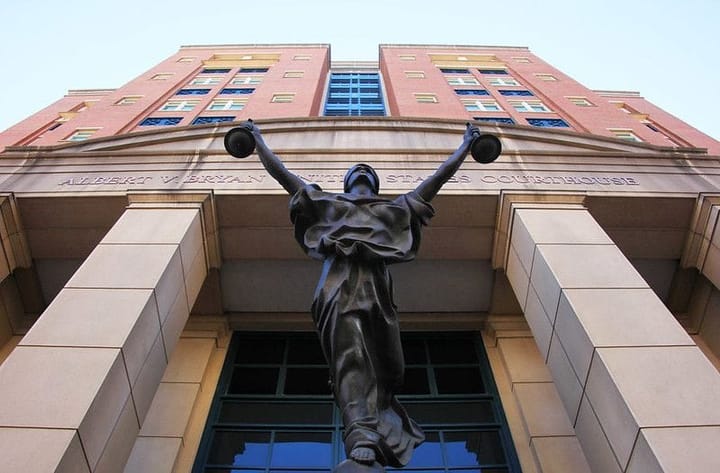
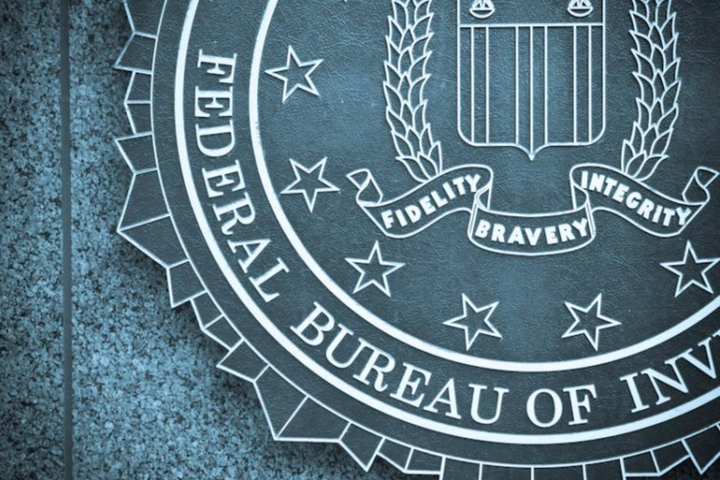
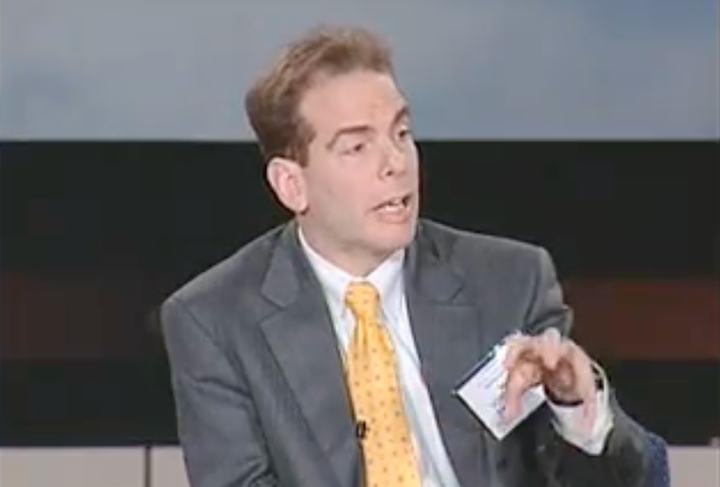
Comments ()